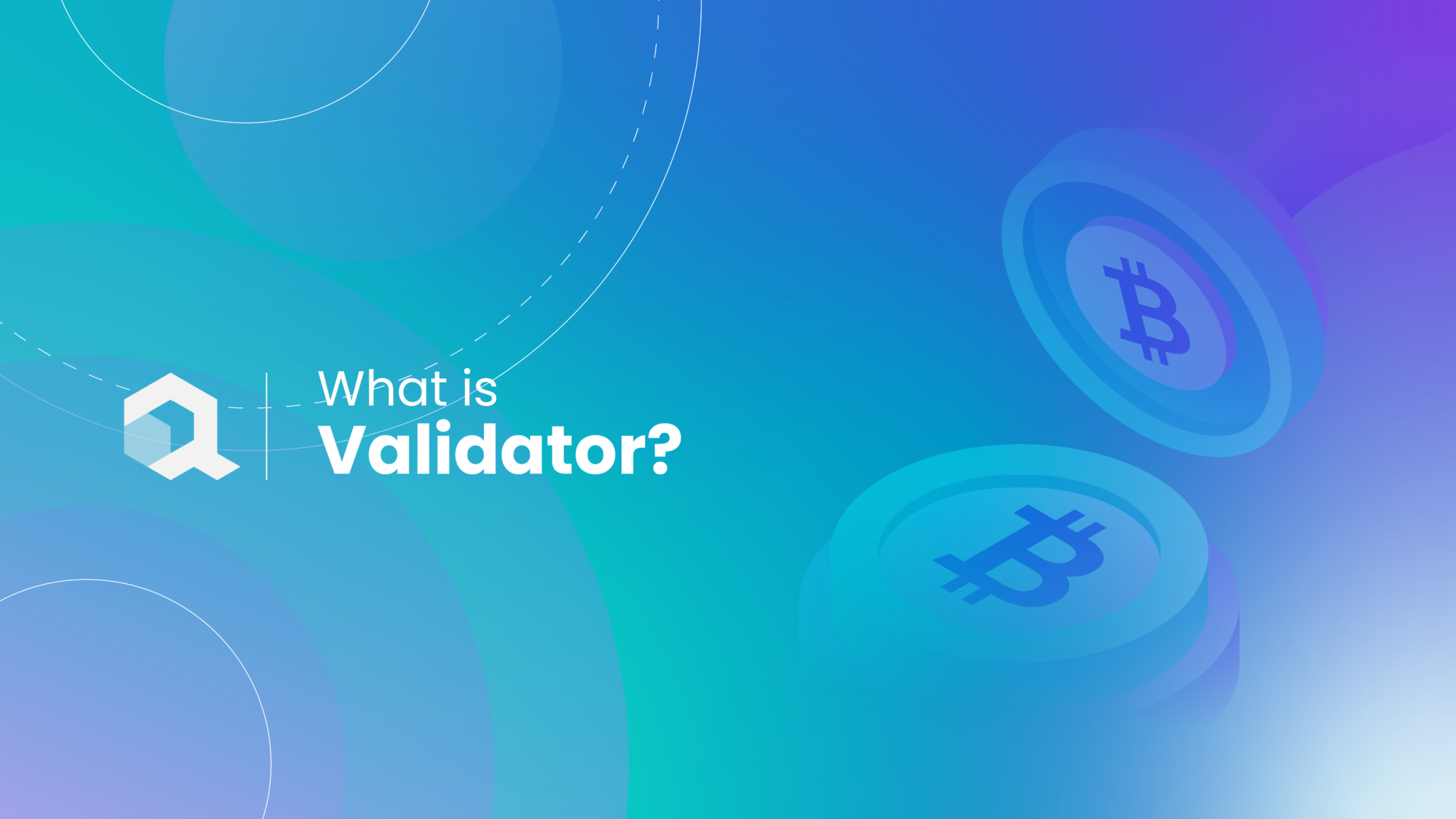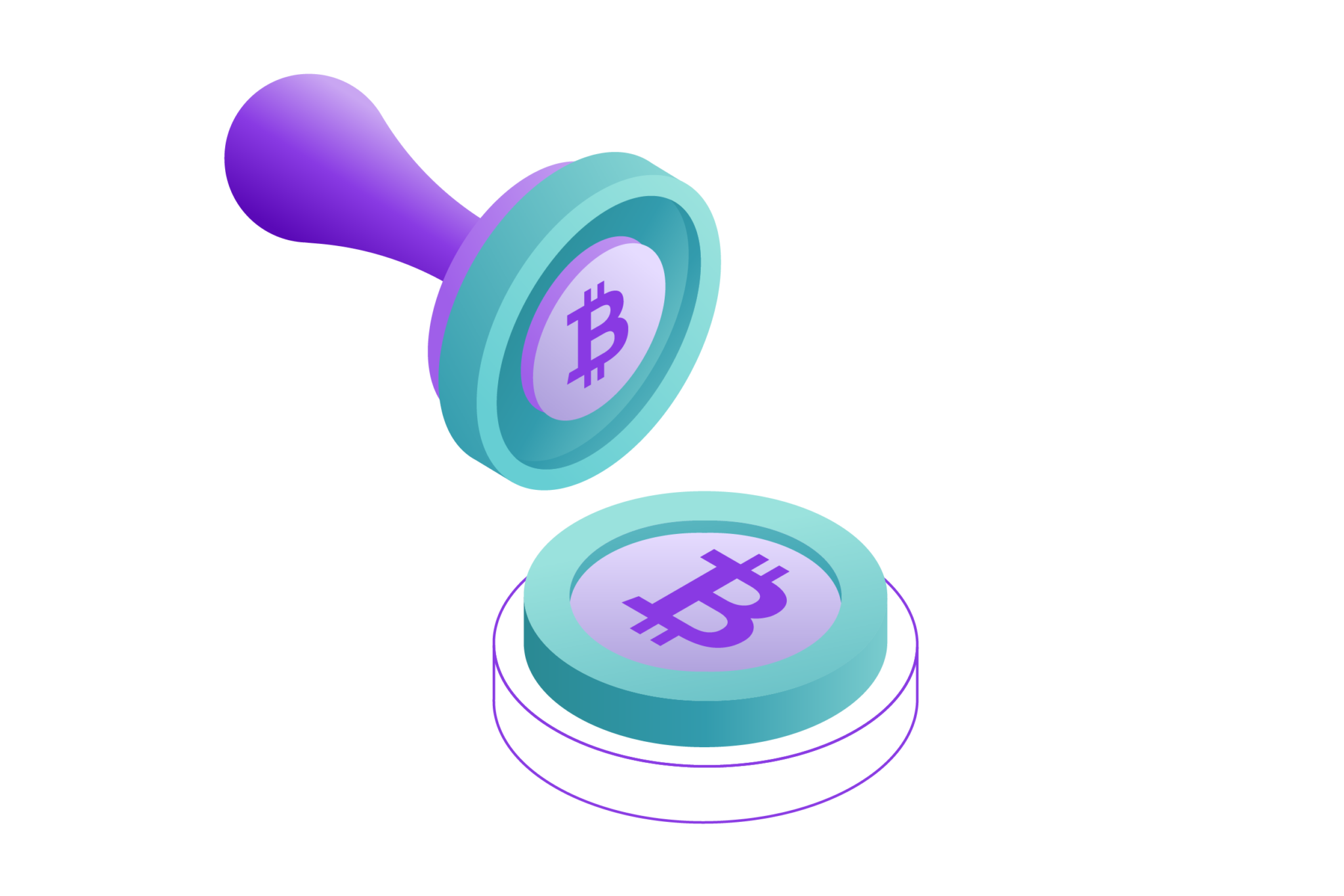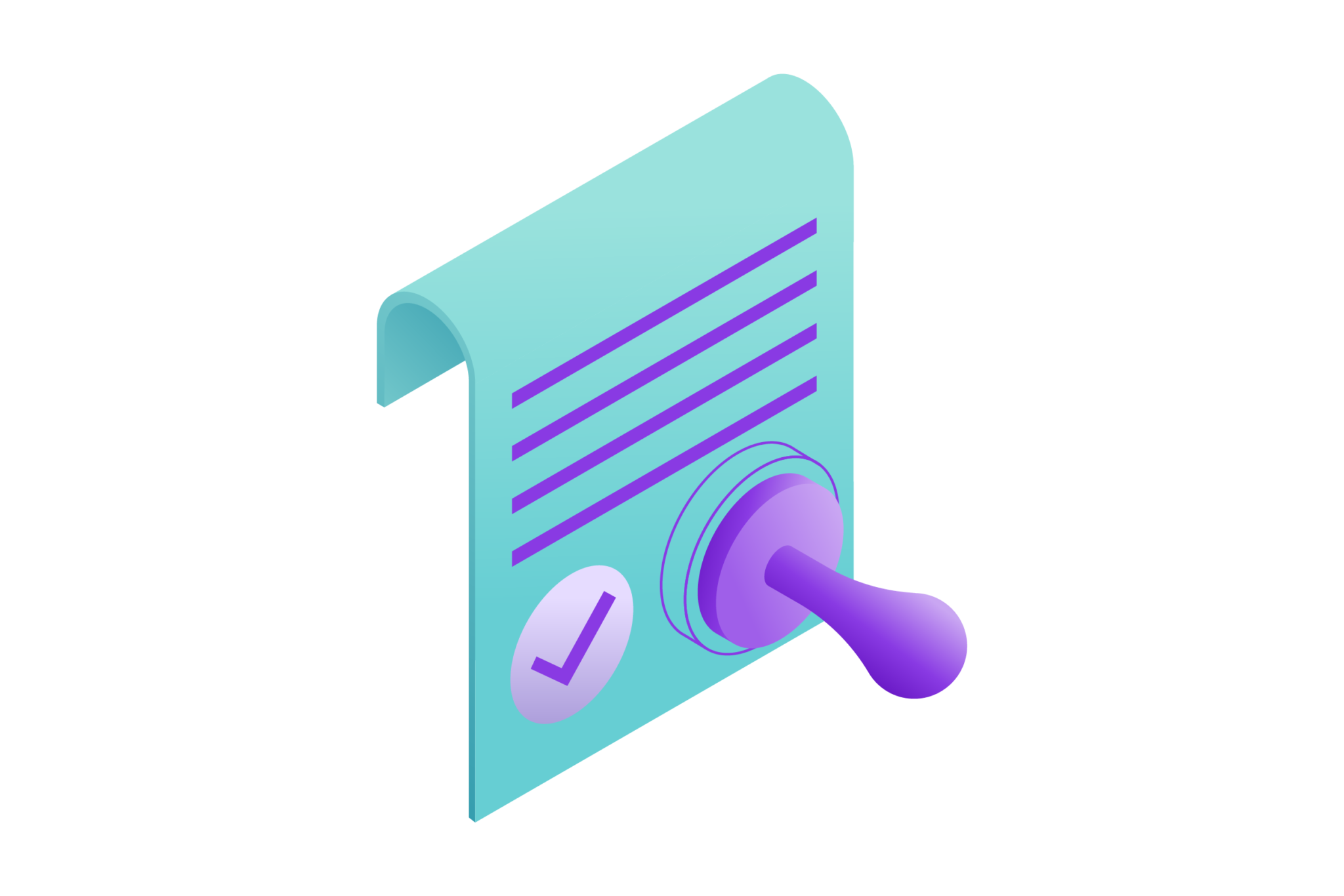
In the vast and intricate world of cryptocurrency, a term that often pops up is “validator.” But what exactly does it mean, and why is it so crucial to the functioning of digital currencies? At its core, a validator plays a fundamental role in the maintenance and security of blockchain networks, the technology underlying most cryptocurrencies. This article aims to demystify the concept of a validator, breaking down its definition and significance in easy-to-understand language.
Validators are the backbone of the blockchain, ensuring that the information being added to the ledger is accurate, secure, and trustworthy. Unlike traditional financial systems where a central authority verifies transactions, blockchain networks rely on these validators to achieve consensus and maintain the integrity of the network. This decentralized approach not only enhances security but also democratizes the process of transaction verification.
Understanding the role of validators is essential for anyone looking to grasp the nuances of how cryptocurrencies operate. Beyond just processing transactions, validators contribute to the overall health and scalability of blockchain networks. They embody the principles of decentralization, trustlessness, and transparency that are central to the ethos of cryptocurrency. In the following sections, we’ll dive deeper into the mechanics of validators, their types, the challenges they face, and their impact on the future of digital transactions.
What Is a Validator?

A validator within the blockchain ecosystem plays a pivotal role, acting as a gatekeeper to ensure the veracity and legitimacy of transactions before they are permanently recorded on the blockchain ledger. This process is fundamental to preserving the blockchain network’s integrity, security, and trust. Validators are integral to the consensus mechanism—a core feature of blockchain technology that facilitates a unified agreement on the validity and order of transactions. This mechanism is what allows the decentralized network to collectively decide which transactions are valid and should be added to the ledger, without the need for a central governing body.
By verifying transactions, validators help to thwart potential security threats like double-spending, where the same digital asset could be spent more than once, thereby upholding the accuracy and reliability of the blockchain. Their work ensures that every transaction added to the blockchain is genuine, contributing to the network’s transparency and trustlessness. This means that participants can engage in secure digital transactions, confident in the knowledge that their transactions will be executed as intended, without the need for intermediaries. In this way, validators are foundational to the blockchain’s operation, enabling the technology’s promise of secure, transparent, and decentralized digital exchanges.
What Does a Validator Do?

A validator plays a critical role in maintaining the integrity and functionality of a blockchain network. Their primary task involves verifying the authenticity and validity of transactions to ensure they comply with the network’s rules before these transactions are added to the blockchain. Validators are pivotal in the process of updating the blockchain with new blocks, which contain batches of validated transactions.
The process by which validators are selected and how they operate is governed by the consensus mechanism of the blockchain. A consensus mechanism is essentially the protocol that a blockchain network uses to achieve agreement among its participants (nodes) about the current state of the ledger, ensuring that each participant has an identical copy of the record. There are several types of consensus mechanisms, but the most widely recognized and implemented ones are Proof of Work (PoW) and Proof of Stake (PoS).
Also Read: What is Foundry? Its Role and How It Works
In a PoW system, validators (often referred to as miners) compete to solve complex mathematical puzzles, and the first to solve the puzzle gets the right to add a new block to the blockchain. This process requires significant computational power and energy, acting as a deterrent against dishonest behavior.
On the other hand, PoS systems choose validators based on the amount of cryptocurrency they are willing to lock up or “stake” as collateral. The underlying principle is that validators with a higher stake in the network are more likely to act honestly, as they have more to lose if the network’s integrity is compromised. In PoS, the probability of being chosen to validate transactions and create new blocks often correlates with the size of one’s stake, although many variations of PoS exist to ensure decentralization and fairness.
Validators are incentivized to act in the network’s best interest through rewards, typically in the form of transaction fees or newly minted cryptocurrency. However, they also face penalties for dishonest or negligent behavior, such as losing a portion of their stake in a PoS system. This system of rewards and penalties helps to secure the network against fraudulent activities and ensures that validators are committed to maintaining the blockchain’s integrity.
Overall, validators are fundamental to the blockchain’s operation, facilitating consensus, ensuring security, and enabling the decentralized and trustless nature of these systems.
The Different Types of Validators

The landscape of blockchain technology is incredibly diverse, with different consensus mechanisms underpinning the security and efficiency of various networks. These mechanisms determine how transactions are verified and how new blocks are added to the blockchain. Among the critical roles within these mechanisms are validators, whose responsibilities and selection criteria vary significantly across different blockchain architectures. Here’s a deeper look into the different types of validators and how they operate within these systems:
1. Proof of Work (PoW) Validators – Miners
In Proof of Work systems, such as Bitcoin, validators are commonly known as miners. These participants use their computational power to solve complex mathematical puzzles. The first miner to solve the puzzle gets the right to add a new block to the blockchain and is rewarded with the network’s cryptocurrency. This process, known as mining, requires significant energy consumption and computational effort. The security of PoW networks hinges on the idea that the cost of attempting to attack or manipulate the network (e.g., by achieving a 51% control over the computing power) is prohibitively high.
2. Proof of Stake (PoS) Validators
Proof of Stake networks, such as Ethereum 2.0, choose validators based on the amount of cryptocurrency they are willing to “stake” or lock up as collateral. The more one stakes, the higher the chances of being selected to validate new transactions and create new blocks. However, mechanisms are in place to prevent any single validator from having disproportionate control, such as random selection processes or other forms of algorithmic selection. PoS is seen as a more energy-efficient alternative to PoW, as it doesn’t require extensive computational work.
3. Delegated Proof of Stake (DPoS) Validators
Delegated Proof of Stake is a variation of the PoS model, adding an extra layer of democracy into the mix. In DPoS systems, token holders vote to elect a certain number of delegates, who then become validators responsible for securing the network and validating transactions. This system is designed to be more scalable and efficient, allowing for faster transaction processing times. However, it also concentrates power in the hands of a smaller number of validators, which can raise concerns about centralization.
4. Proof of Authority (PoA) Validators
In Proof of Authority networks, validators are pre-selected, trusted entities known for their reputation. Unlike PoW and PoS, PoA does not require validators to expend significant computational power or stake large amounts of cryptocurrency. Instead, their identity and reputation serve as their stake, incentivizing them to maintain the network’s integrity. PoA networks are often faster and more energy-efficient but require a high degree of trust in the selected validators.
Each type of validator plays a crucial role in maintaining the security, integrity, and efficiency of their respective blockchain networks. The choice of consensus mechanism—and by extension, the type of validators—reflects a network’s priorities, whether they be decentralization, scalability, energy efficiency, or speed. As blockchain technology evolves, we may see new forms of consensus mechanisms and validators emerge, further diversifying this already complex landscape.
The Role of Validators in Network Security
Validators are fundamental to the blockchain ecosystem, serving as guardians of network security and integrity. Their primary role involves verifying and appending transactions to the blockchain, a decentralized ledger that records all transactions across a network. This process is vital for maintaining the transparency and trust that are the hallmarks of blockchain technology.
- Ensuring Transaction Legitimacy: Validators scrutinize each transaction to confirm its authenticity and compliance with the network’s rules. This scrutiny includes verifying the digital signatures associated with each transaction, which serve as proof of ownership and consent from the parties involved. By confirming that each transaction is legitimate, validators prevent fraudulent activities, such as the manipulation of transaction data.
- Preventing Double-Spending: A significant threat in digital currencies is the risk of double-spending, where a user attempts to spend the same digital assets more than once. Validators deter this by cross-referencing each new transaction against the blockchain’s extensive history. This ensures that the same assets have not been previously spent, maintaining the digital currency’s value and reliability.
- Maintaining Network Consensus: Validators also play a crucial role in achieving consensus—a mutual agreement on the validity of transactions among different network participants. Through consensus mechanisms like Proof of Work (PoW) or Proof of Stake (PoS), validators collectively agree on the current state of the blockchain. This consensus is critical for the network’s continuity and resilience against attacks.
- Enhancing Network Security: By diligently performing these tasks, validators enhance the network’s security. They make it exceedingly difficult for attackers to alter the blockchain’s history or introduce illegitimate transactions without being detected. This security is essential for protecting the network against various threats, including 51% attacks, where an attacker gains control of the majority of the network’s computing power or stake, potentially allowing them to manipulate transactions.
Validators are indispensable to the blockchain ecosystem. Their work in verifying transactions, preventing fraud, maintaining consensus, and enhancing network security ensures the blockchain remains a secure, transparent, and trustworthy technology. Without validators, the blockchain’s foundational principles of decentralization and trust would be at risk, underscoring their critical role in the network’s overall health and security.
Challenges Faced by Validators
The role of a validator in blockchain networks, particularly those employing Proof of Work (PoW) or Proof of Stake (PoS) consensus mechanisms, is critical for maintaining the integrity and functionality of the blockchain. However, this responsibility comes with its own set of significant challenges:
- High Operational Costs: For PoW validators, often referred to as miners, the operational costs are substantial. This is because PoW requires significant computational power to solve complex mathematical problems, which in turn demands expensive, high-end hardware and consumes a large amount of electricity. The costs can be prohibitive, making it difficult for individual miners or smaller operations to compete with large mining pools or farms.
- Staking Risks for PoS Validators: In PoS and variations like Delegated Proof of Stake (DPoS), validators are chosen to create new blocks and validate transactions based on the amount of cryptocurrency they are willing to “stake” or lock up as collateral. While this is less energy-intensive compared to PoW, it introduces the risk of staking a large amount of cryptocurrency, which could be lost due to penalties for validator misbehavior (in some protocols) or due to the volatility of the cryptocurrency market.
Also Read: What is a DDoS Attack? Techniques, Impact, and Prevention Strategies
- Security Risks: Validators are prime targets for cyberattacks because they hold significant amounts of cryptocurrency and are integral to the transaction validation process. They must invest in robust security measures to protect against hacking, phishing, and other forms of cyberattacks. This includes securing their private keys, which are used to sign transactions and must be kept secret to prevent unauthorized access to their staked funds.
- Need for Constant Vigilance and Updates: Blockchain technology is rapidly evolving, with new protocols, features, and security measures being developed. Validators must stay informed about these changes to ensure the blockchain operates smoothly and securely. This may require regularly updating software, adjusting to new consensus mechanisms, or implementing additional security measures to counter new threats.
- Regulatory and Legal Challenges: The regulatory landscape for cryptocurrencies and blockchain technology is still evolving, with significant variations between jurisdictions. Validators must navigate these legal complexities, which may involve compliance with financial regulations, anti-money laundering (AML) and know your customer (KYC) policies, and other legal requirements. Failure to comply can result in significant legal and financial penalties.
- Network Participation and Governance: In some blockchain networks, validators also play a crucial role in governance decisions, such as voting on network upgrades or changes to the protocol. This adds an additional layer of responsibility, requiring validators to be well-informed about the implications of proposed changes and to actively participate in the governance process.
Overall, while the role of a validator is lucrative and critical for the functioning of blockchain networks, it demands significant investment, expertise, and diligence to navigate the myriad challenges successfully.
Conclusion
Validators are more than just participants in the blockchain; they are the guardians of trust and security in the cryptocurrency ecosystem. Their work ensures that transactions are processed efficiently, securely, and accurately, fostering trust in digital currencies. As blockchain technology continues to evolve, the role of validators will undoubtedly become even more critical, shaping the future of finance and digital transactions.
The understanding of what a validator is and the appreciation of their contribution to the blockchain ecosystem is fundamental for anyone navigating the world of cryptocurrencies. Their role embodies the principles of decentralization and trustlessness, offering a glimpse into the potential for a more transparent and equitable financial system. As we look towards the future, the innovations and challenges faced by validators will be pivotal in steering the direction of cryptocurrency and its integration into mainstream finance.
Disclaimer: The information provided by Quant Matter in this article is intended for general informational purposes and does not reflect the company’s opinion. It is not intended as investment advice or a recommendation. Readers are strongly advised to conduct their own thorough research and consult with a qualified financial advisor before making any financial decisions.

Joshua Soriano
As an author, I bring clarity to the complex intersections of technology and finance. My focus is on unraveling the complexities of using data science and machine learning in the cryptocurrency market, aiming to make the principles of quantitative trading understandable for everyone. Through my writing, I invite readers to explore how cutting-edge technology can be applied to make informed decisions in the fast-paced world of crypto trading, simplifying advanced concepts into engaging and accessible narratives.
- Joshua Soriano#molongui-disabled-link
- Joshua Soriano#molongui-disabled-link
- Joshua Soriano#molongui-disabled-link
- Joshua Soriano#molongui-disabled-link
